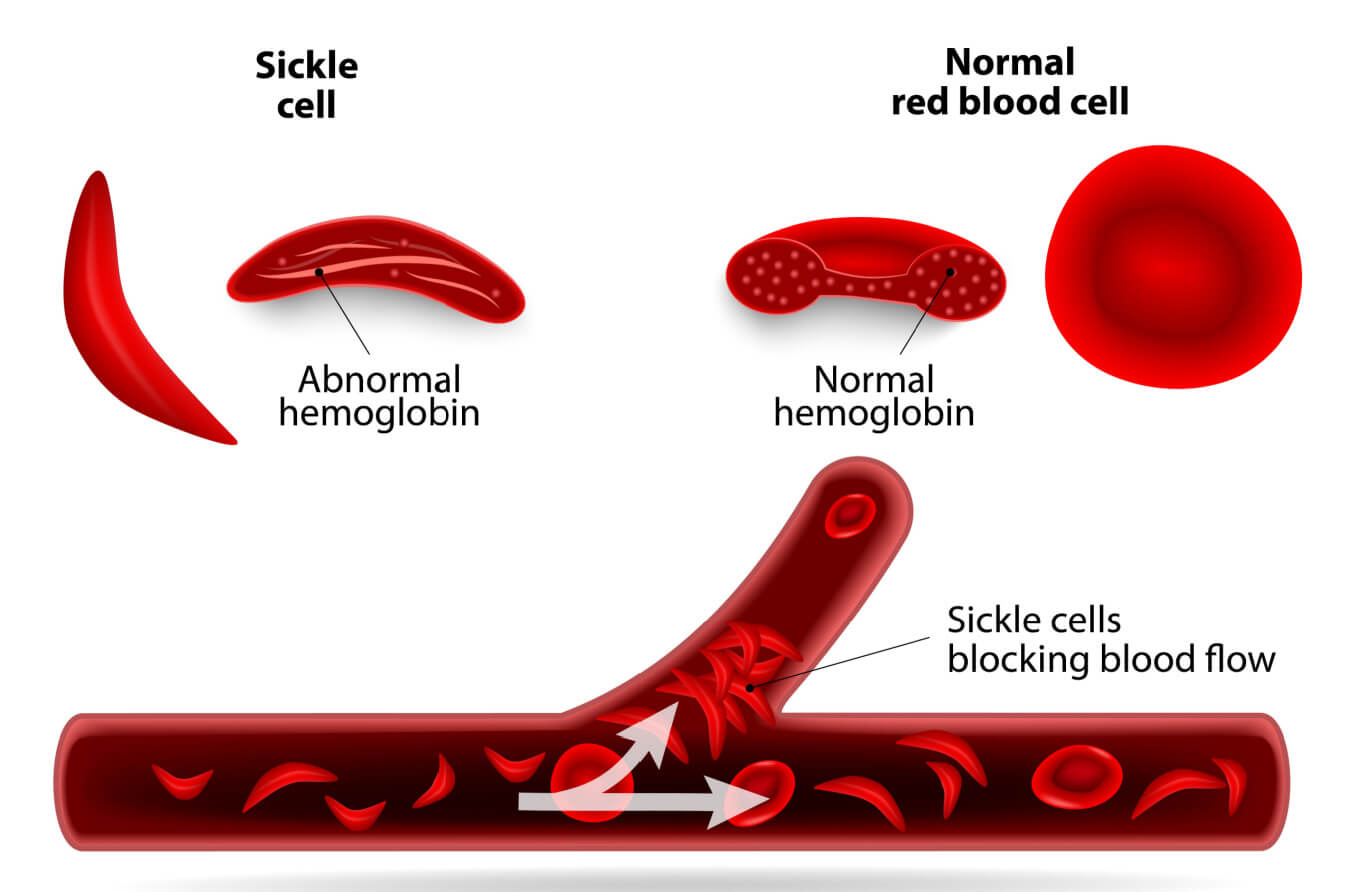
Sickle cell anemia, an hereditary blood disorder, transforms the normal structure of red blood cells, causing them to shift from their typical round and flexible form to rigid, adhesive sickled cells. This alteration hinders the effective transport of oxygen across the body, impeding the vital role of red blood cells. Additionally, sickled cells possess a reduced lifespan compared to healthy red blood cells, which results in the breakdown of these cells and subsequently leads to anemia. Dr. Vikas Dua treat Sickle Cell Disease in Children, including the blood and provides the best Sickle Cell Anemia treatment in Delhi NCR .
Individuals afflicted by sickle cell anemia persistently encounter life-threatening medical complications.
What is the cause of sickle cell anemia?
According to Doctor for Sickle Cell Anemia in Delhi indicates that this condition is inherited from biological parents. Sickle cell anemia arises from a mutation in the gene responsible for producing normal red blood cells. Individuals with this disorder inherit the mutated hemoglobin protein gene from both parents, while those with sickle cell trait inherit the mutated gene from one parent.
Symptoms: Typically manifesting as early as six months of age, the symptoms of sickle cell anemia exhibit variation among individuals and evolve over time. These signs and symptoms encompass:
- Anemia: Sickle cells are prone to premature disintegration and death. Unlike normal red blood cells, which have a lifespan of around 120 days before renewal, sickle cells tend to perish within 10 to 20 days, leading to a shortage of red blood cells (anemia). The body’s oxygen supply becomes inadequate due to this shortfall, resulting in fatigue.
- Painful Episodes: Frequent and severe pain episodes characterize sickle cell anemia. The abnormal, sickle-shaped red blood cells impede blood flow, causing pain in the chest, abdomen, and joints through narrow blood vessels. This leads to recurring painful episodes, sometimes necessitating hospitalization. The intensity and duration of the pain vary, ranging from a few hours to several days. While some individuals experience only a few pain episodes annually, others endure dozens or more. Severe pain crises may require hospitalization. In certain adolescents and adults with sickle cell anemia, chronic pain can contribute to bone and joint damage.
- Swelling in Hands and Feet: The obstruction of blood flow by sickle-shaped red blood cells can lead to swelling in the hands and feet.
- Increased Susceptibility to Infections: Sickle cells can impair the spleen’s function, rendering it more vulnerable to infections. Infants and children with sickle cell anemia commonly receive vaccinations and antibiotics to prevent potentially fatal infections like pneumonia.
- Delayed Growth and Puberty: Insufficient healthy red blood cells can delay infant and child development, as well as puberty in teenagers.
- Stroke-like Symptoms: Reduced blood flow and blockages in cerebral blood vessels can result in symptoms resembling those of a stroke.
Risk Factors: For a child to be born with sickle cell anemia, both parents must carry the sickle cell gene. In the United States, sickle cell anemia predominantly affects individuals of African, Mediterranean, and Middle Eastern descent. In India, it is particularly prevalent among tribal populations, notably in states such as Chattisgarh, Odisha, Jharkhand, Madhya Pradesh, and upper Assam.
Prevention: Consulting a genetic counselor before attempting to conceive can provide insights into the risk of having a child with sickle cell anemia if one carries the sickle cell trait. Genetic counselors can also discuss preventive measures and reproductive options.
Diagnosis: The presence of the hemoglobin type responsible for sickle cell anemia can be identified through a blood test called HPLC. This test is routinely conducted during pregnancy in major centers across India. It is advisable for both partners to undergo HPLC tests before attempting to conceive.
Treatment: The objectives of treating sickle cell anemia include averting pain episodes, alleviating symptoms, and preventing complications. Treatment options encompass medications and blood transfusions. Hematopoietic stem cell transplantation, commonly known as a bone marrow transplant, serves as a curative approach for certain children and teenagers who experience recurrent painful episodes and acute strokes.
Medications: Daily medication usage reduces the frequency of painful episodes and may diminish the necessity for blood transfusions and hospital stays. Recent advancements have introduced targeted medications for treating sickle cell disease in adults and children aged twelve and above. When taken orally, these medications can mitigate the risk of anemia while enhancing overall blood circulation. Pain relief medication is employed during sickle cell pain episodes, with doctors sometimes prescribing narcotics to alleviate discomfort. Adequate hydration is crucial to prevent pain episodes.
Dr. Vikas Dua is a Best Doctor for Sickle Cell Anemia Treatment in Delhi. Book an appointment for Sickle Cell Anemia Treatment in Delhi NCR.

